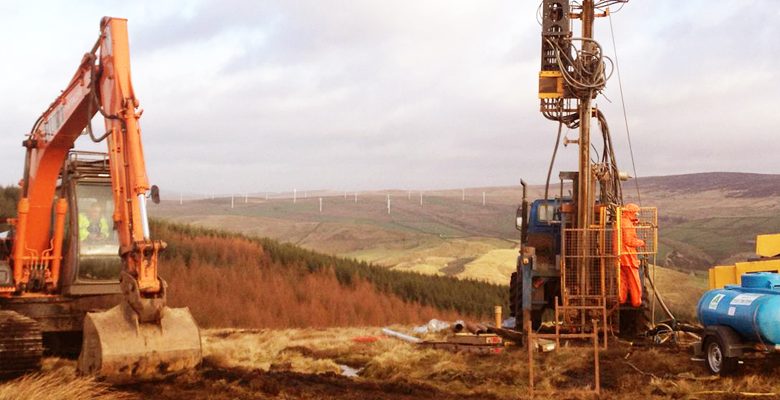Unearthing the Value of Geotechnical Services: Building on Solid Ground
Unearthing the Value of Geotechnical Services: Building on Solid Ground

When it comes to construction projects, whether it’s towering skyscrapers, intricate bridges, or expansive infrastructure, building on solid ground is of paramount importance. The foundation upon which these structures rest serves as the bedrock of their stability and longevity. This crucial aspect of construction is where geotechnical services play a pivotal role. Geotechnical engineering, a specialized discipline within civil engineering, focuses on understanding the behavior of soil, rock, and groundwater to ensure safe and efficient construction. In this article, we will delve into the value of geotechnical services and explore the myriad ways they contribute to building on solid ground.
1. Assessing Site Conditions:
Before any construction project can commence, an accurate assessment of site conditions is essential. Geotechnical engineers conduct extensive site investigations to evaluate the geology, soil composition, and groundwater conditions. By understanding these factors, they can determine the suitability of the site for construction, identify potential risks, and design appropriate foundation systems. This initial evaluation lays the groundwork for the entire project and helps mitigate future issues that may arise due to poor site selection or inadequate preparation.
2. Foundation Design and Analysis:
The foundation is the interface between a structure and the ground it rests upon. Geotechnical engineers employ sophisticated techniques to design and analyze foundations that can withstand the loads imposed by the structure and provide the necessary support. By considering factors such as soil bearing capacity, settlement analysis, and potential ground movement, they develop robust foundation systems tailored to the specific project requirements. Whether it’s shallow foundations, deep piles, or specialized techniques like ground improvement, geotechnical services ensure that the foundation is optimized for stability and durability.
3. Slope Stability and Retaining Structures:
In projects involving hillsides, embankments, or excavation, slope stability is a critical concern. Geotechnical engineers conduct comprehensive slope stability analysis to identify potential failures and recommend appropriate stabilization measures. They design retaining structures like retaining walls, slope reinforcements, and soil anchors to prevent landslides, soil erosion, or collapse. By carefully assessing the slope conditions and employing suitable engineering solutions, geotechnical services help mitigate risks and ensure the safety of nearby structures and inhabitants.
4. Groundwater Management:
Water plays a significant role in geotechnical engineering, as it can significantly impact soil behavior and stability. Geotechnical services include hydrogeological studies to evaluate groundwater conditions and manage their effects on construction projects. Engineers analyze groundwater flow patterns, conduct pumping tests, and design appropriate drainage systems to prevent water-related issues such as soil liquefaction, seepage, or instability. Effective groundwater management ensures the integrity of the foundation and minimizes the risks associated with water-induced hazards.
5. Environmental Considerations:
In the modern era, sustainable construction practices and environmental considerations have gained immense importance. Geotechnical services align with these objectives by assessing the environmental impact of construction projects. Geotechnical engineers study the soil and groundwater quality, conduct contaminant transport modeling, and propose remediation techniques when necessary. By integrating environmental factors into their evaluations, geotechnical professionals contribute to the preservation of ecosystems and the prevention of pollution, ultimately promoting sustainable development.
6. Construction Monitoring and Quality Control:
During construction, geotechnical engineers provide crucial support through monitoring and quality control measures. They supervise soil compaction, conduct field tests, and verify that the construction activities align with the design specifications. By ensuring proper implementation of geotechnical recommendations, they safeguard the integrity of the foundation and address any unforeseen issues promptly. Construction monitoring helps detect potential problems in real-time, allowing for timely adjustments and preventing costly delays or structural failures.
7. Risk Assessment and Mitigation:
Geotechnical services play a pivotal role in identifying and mitigating risks associated with ground conditions. By conducting detailed risk assessments, geotechnical engineers can identify potential hazards and develop strategies to mitigate them. They consider factors such as soil stability, seismic activity, and geological hazards to determine the level of risk and the appropriate measures to minimize it.
Example:
For example, in earthquake-prone areas, geotechnical engineers evaluate the soil liquefaction potential, which can cause severe damage to structures. They design foundation systems that can resist liquefaction and implement ground improvement techniques to increase soil stability. By incorporating seismic design principles, geotechnical services ensure that structures can withstand the forces generated by earthquakes, safeguarding lives and property.
Designing Coastal Protection:
In coastal regions, geotechnical engineers assess the risk of soil erosion and the effects of wave action. They design coastal protection measures such as breakwaters, revetments, or seawalls to mitigate erosion and protect the integrity of coastal structures. By considering factors such as wave forces, tidal fluctuations, and sediment transport, geotechnical services provide sustainable and resilient solutions in coastal development.
Addressing Geohazards:
Moreover, geotechnical services also address geohazards such as landslides, sinkholes, or subsidence. Through geotechnical investigations and monitoring, engineers can identify areas prone to these hazards and develop strategies to prevent or mitigate their occurrence. They may recommend slope stabilization techniques, such as soil reinforcement or drainage systems, to reduce landslide risks. Geotechnical services ensure that proper measures are in place to minimize the impact of geohazards on construction projects and nearby communities.
Assessing Geotechnical Risks
Additionally, geotechnical services contribute to the assessment and management of geotechnical risks during the operational phase of infrastructure projects. They monitor ground movement, settlement, and structural performance to detect any signs of distress or potential failures. By implementing geotechnical instrumentation and conducting regular inspections, engineers can identify issues early on and take corrective actions, thus ensuring the long-term safety and functionality of the structures.
Conclusion
In summary, geotechnical services provide invaluable contributions to construction projects by assessing site conditions, designing robust foundations, managing groundwater, addressing environmental concerns, and monitoring construction activities. Furthermore, they play a vital role in risk assessment and mitigation, identifying potential hazards and implementing measures to minimize their impact. By building on solid ground, geotechnical engineering ensures the safety, longevity, and sustainability of structures, promoting the overall success of construction projects and the well-being of communities.


